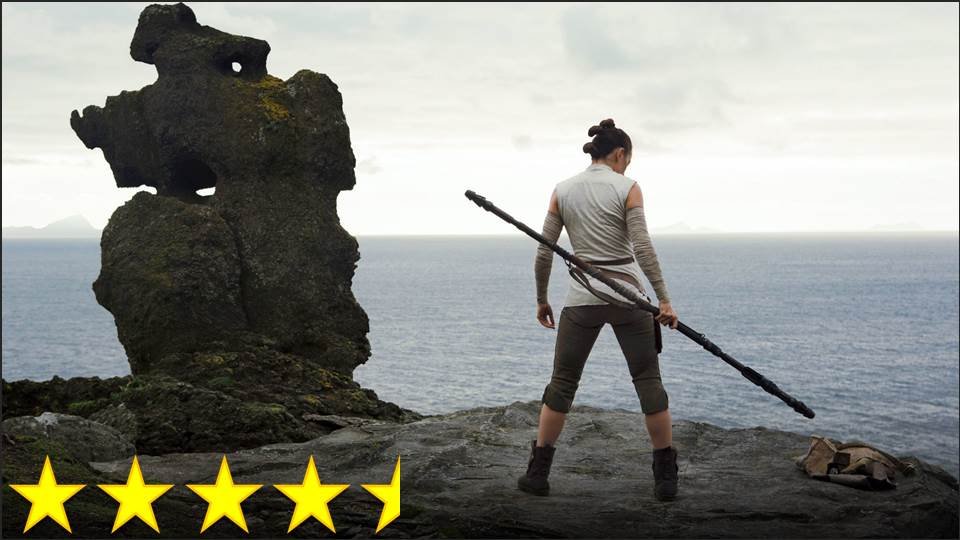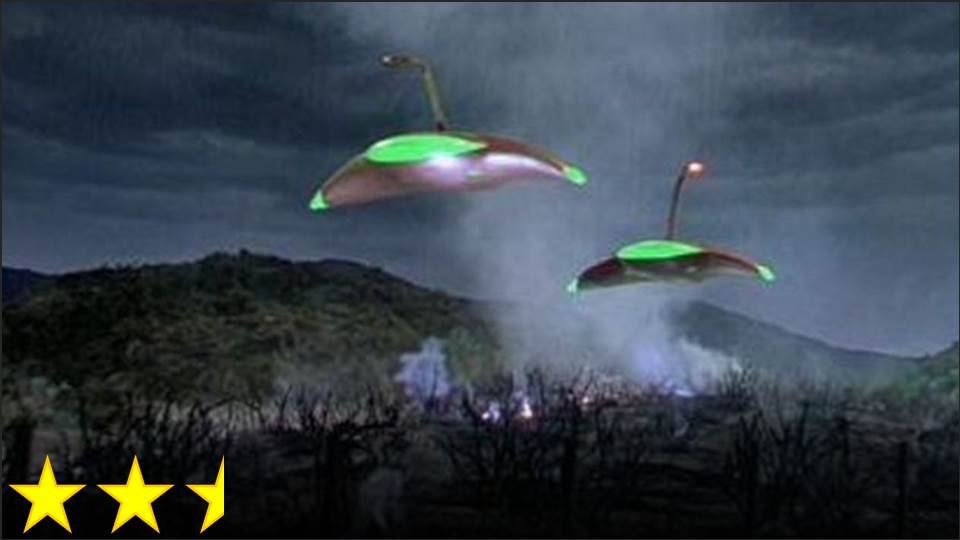This is my favorite Star Wars film.
Yes, I know it has problems. A lot of problems. But I’ve come to expect that from contemporary Hollywood blockbusters. So today, when I look at new movies from Hollywood, I usually only focus on the flaws if a film is so void of substance that there is nothing else upon which I can look. That isn’t the case here. There is not only substance to this film, but an intellectual depth, an emotional appeal, and maybe even a level of artistic craftsmanship that I have not seen in any prior films in the franchise.
I’ll take these points in reverse order, starting with the artistry and crafting, spoiling as little as I possibly can considering the topics at hand. The film is very well put-together, demonstrating an understanding of how to borrow from many very different sources to create a unified whole. Slate has a list of everything outside of Star Wars Rian Johnson pulled from to strengthen the film, and some of these choices are very clever. Primarily, I’m impressed with the use of The Rashomon Effect because this is a nod to Star Wars’ inheritances from the samurai films of Kurosawa that uses a particular Kurosawa film that one would never think would be useful to the Star Wars franchise (making it almost a joke, but only for film majors). I actually didn’t even pick up on that until I read it after the fact. Still, during the movie, I was blown away by the look of the film – especially Snoke’s room, which has the best set design I’ve seen in any film in the past decade. The careful use of editing to link Rey to Kylo Ren is also the mark of a daring filmmaker, as is the choice to use practical effects for characters which one would assume they’d surely do with CGI today. My favorite moment in the film in terms of artistry, however, is that moment of total silence, which is pure and concentrated “cool.”
More importantly, it’s a scene that creates a great affect (and I do mean affect in this case, not effect), which is something Johnson knows how to do better than a lot of other contemporary filmmakers. While most Star Wars films don’t really grab me, this film pulls me in. To a large extent, the film does it with its comedy, and this is no surprise: few would argue with the view that The Last Jedi is probably the funniest Star Wars film. There’s more to it than that though. I’m invested in Rey’s quest in a way that I was never invested in Luke Skywalker’s “quest” in the original trilogy, and I’m even invested in Luke more than I had been before. For whatever reason, I find that I just care about the characters more in this film. Furthermore, Johnson also knows how to build up a desire in the audience and satisfy it. The scene in which we expect (if only for a half second) that Kylo is going to kill Rey, followed by an epic turn of events, is one of the most thrilling moments in movie history, at least for me, and I can only compare it to the way I felt during the climax of the final Hunger Games film: I didn’t realize just how much I needed to see this moment until right before it happened.
That being said, I know the film wasn’t very satisfying for most Star Wars fans, and I can understand why. The way that the character of Luke Skywalker is handled in the film is controversial to say the least. While he’s not eating babies, he’s not necessarily the man that most fans want him to be at this point in his life. Personally though, I’m happy about that. I think it’s about time the whiny farm boy gets brought down a peg. Sure, Luke seems highly irresponsible for staying secluded on this island, but that’s just him channeling Yoda and Obi Wan, who also loafed around lazily as the Dark Side reigned. We should be hating those two jerks more than Luke, but somehow, he’s getting all the blame here, even though he couldn’t even tell what was going on in the rest of the galaxy having cut himself off from the force. (Some say it seems petty for Luke to have made such a drastic decision after making one mistake with just one of his trainees, but I argue that, since Luke’s greatness in the original trilogy is found in his dedication to Han and Leia – particularly in Empire – he probably felt like he had ruined their lived by betraying their trust and letting their son fall to the dark side.)
Of course, the main reason why the fans hate the film is that this film wasn’t made for them, as is stupendously explained in this wonderful piece by Andrew Kahn: “The Last Jedi Isn’t for the Fans.” As this publication points out, it’s about fandom, nostalgia, and mythology – and the dangers of all of them. This piece from Forbes also covers this subject, so I don’t feel the need to explain it myself, but I will say that this is what makes The Last Jedi so satisfying for me: this is the first Star Wars movie to finally address the importance of critical thinking and a healthy skepticism when it comes to mythology. In all the previous films, the skeptic – of the stories of the Jedi, of the power of the force, etc. – is always wrong, but here, it’s a lack of a healthy skepticism of myth that causes characters to stumble. This honest look at the nature of fandom, the danger of mythology, and the immense stress and tension that comes from constantly trying to hold yourself up to the standards of legends, cultural norms, and collectively shared images of ideals.
Without this film, the Star Wars franchise is philosophically barron and culturally toxic, propagating a plethora of regressive ideas about faith and belief. With this film, however, the franchise is redeemed, and my love for Star Wars is tripled. This isn’t the Star Wars movie we wanted – and it’s trying hard not to be the Star Wars movie we wanted – but it’s the one we need, the one we deserve, and the only one with the potential to make the world a better place. The choice to lay the biggest and most controversial elephant in the room of media bare before us all makes this the most daring, and perhaps most important, film of the 21st Century thus far.





